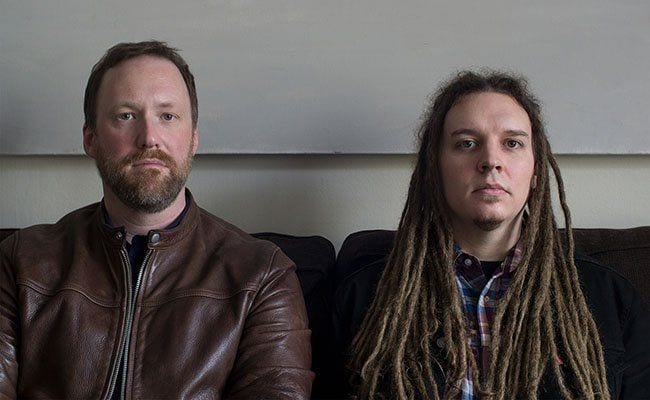Small Souls‘ big sound is the brainchild of just two individuals. At the forefront of the project is folk artist Brian Rozendal, who lends his songwriting and performance skills to the band’s work. Rounding out the duo is producer Bryan Daste, who auditioned for the job via MySpace when Rozendal decided that he wanted to expand his sound.
On their latest LP, Unheard, Unseen, Rozendal and Daste continue to push the boundaries of folk music with their “post-folk” delivery. Much like what bands like Punch Brothers did by fronting the newgrass movement, Small Souls is aiming to do with challenging the traditional imagery of a bard sitting on a stool in the corner of a musky room.
For the most part, they succeed. Rozendal’s songwriting chops are sound, producing a blend of both empathetic and philosophical tunes that would do well on any contemporary folk release. Daste’s production adds an ethereal component to proceedings, imbuing what could otherwise be seen as traditional songwriting with unexpected twists and turns of the sonic variety.
Rozendal tells PopMatters that “Unheard, Unseen was a labor of love for us. We had enough songs to record a new album over two years ago, but after a lineup change in the band, we started reconsidering how to present this group of songs. We had been playing them live, fairly straight as written, but I was growing restless. I knew we could go further, and I knew that Bryan had the technical expertise and artistic vision to make it happen.
“We started demoing each song just on acoustic guitar and vocals, then taking a step back. What was this song trying to say? What was the most effective way to say it? Fast, slow, hard, soft, etc.? We experimented with different sounds, different tempos and rhythms until we found some combination that best served the song. We took about a month for each song, and in the process ended up ditching a handful of tunes that didn’t pass muster. It was during this time we started playing live with backing tracks, trying out the new versions on new audiences. It went well, so we kept pushing.
“One of the advantages of being an unsigned, relatively unknown artist is that you have complete artistic freedom. We embraced that chaos and started taking more risks. Regardless of what happens with this album, I hope that we can retain a commitment to that ethic — to keep exploring, experimenting, and following the musical possibilities.”

